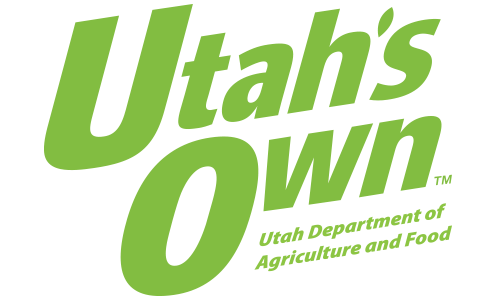Export Spotlight: Gusto Brazil
Common Considerations When Entering a New International Market
When first exploring export opportunities there are many critical considerations to make. For many, this can feel daunting and even paralyze the willingness of an emerging business to enter into new markets. Oftentimes, entrepreneurs find themselves buried in mountains of information and experience great confusion on where to start.
Recently, members of the Utah Department of Agriculture and Food (UDAF) Marketing and Economic Development Team met with Carlos Cavalcanti from Gusto Brazil, a company manufacturing authentic Brazilian cheese bread, to learn more about the first steps they have taken toward global expansion.
 As a company new to exporting, Gusto Brazil has taken deliberate care with their business expansion plans. When asked about the decision making process when entering into new international markets, Carlos responded that his decisions are solely based on consumer interest in his product. Before dedicating large amounts of resources to one market, Carlos determines the in-country demand for Brazilian cheese bread and other similar products. A few things to consider when determining this demand are consumer demographics, flavor and ingredient preferences, and consumer buying trends such as in-store vs. online or local products vs. imported goods.
As a company new to exporting, Gusto Brazil has taken deliberate care with their business expansion plans. When asked about the decision making process when entering into new international markets, Carlos responded that his decisions are solely based on consumer interest in his product. Before dedicating large amounts of resources to one market, Carlos determines the in-country demand for Brazilian cheese bread and other similar products. A few things to consider when determining this demand are consumer demographics, flavor and ingredient preferences, and consumer buying trends such as in-store vs. online or local products vs. imported goods.
 UDAF’s International Trade Program helps businesses grow and succeed by disseminating education and resources available both internally and through our many partnerships with industry experts. Country and region-specific research can be time-consuming, especially for businesses who haven’t yet decided which markets to pursue. While there are a variety of free market and country reports available online, many businesses may be interested in customized research and reports. World Trade Center - Utah offers free market research customized to specific products and can suggest a list of top countries to consider based on proprietary formulas that show the most potential for each product.
UDAF’s International Trade Program helps businesses grow and succeed by disseminating education and resources available both internally and through our many partnerships with industry experts. Country and region-specific research can be time-consuming, especially for businesses who haven’t yet decided which markets to pursue. While there are a variety of free market and country reports available online, many businesses may be interested in customized research and reports. World Trade Center - Utah offers free market research customized to specific products and can suggest a list of top countries to consider based on proprietary formulas that show the most potential for each product.
Another great resource is the U.S. Commercial Service Initial Market Check, where experts in foreign markets review product information to determine potential in specific markets. While there is a small fee associated with this service, State Trade Expansion Program (STEP) Grant funding can be used to cover the cost. These resources can be extremely helpful in identifying international markets to start with.
 As a targeted list of potential foreign markets is developed, it can be helpful to learn more about competitors. After identifying a market with significant interest in his product, Carlos investigated Gusto Brazil’s competitors to determine market advantages and disadvantages. Some factors to consider are competitors’ product lineups, product costs, consumer interest, and distribution methods. This information provides insight into what it takes to successfully compete in a given market. To differentiate themselves from their competitors, Carlos established Gusto Brazil as a distinctly American product and added value to their product lineup by offering two new flavors, bacon and jalapeño, and marketing their cheese bread dough as a base for waffles and tortillas.
As a targeted list of potential foreign markets is developed, it can be helpful to learn more about competitors. After identifying a market with significant interest in his product, Carlos investigated Gusto Brazil’s competitors to determine market advantages and disadvantages. Some factors to consider are competitors’ product lineups, product costs, consumer interest, and distribution methods. This information provides insight into what it takes to successfully compete in a given market. To differentiate themselves from their competitors, Carlos established Gusto Brazil as a distinctly American product and added value to their product lineup by offering two new flavors, bacon and jalapeño, and marketing their cheese bread dough as a base for waffles and tortillas.

